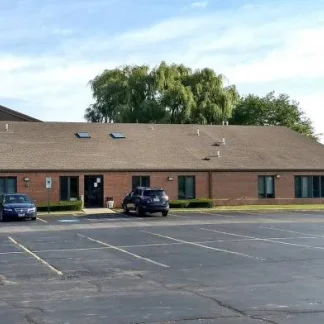Black Alcohol - Drug Services
Black Alcohol – Drug Services is a private rehab located in Saint Louis, Missour...
Alcoholic Rehabilitation Community Home (ARCH) provides extended residential treatment for those men struggling with substance abuse disorders. Services include individual and group therapy, recreational therapy and aftercare services.
ARCH Home philosophy is based on pee-support. They have a strong emphasis on accountability and responsibility. ARCH Home is committed to provide the skills necessary for a successful re-integration back into the society. They believe that recovery requires change including the spiritual, physical, psychological and social development.
ARCH provides DUI Evaluations and Driver’s Risk Education (DRE) classes which is licensed by the State of Illinois.
The usually stay at the treatment is six months. It can vary according to the individual’s plan.
ARCH provides individual and group therapy, recreational activities and aftercare services.
Contact us for more information: (618) 877-4987

Connect with Alcoholic Rehabilitation Community Home - ARCH by calling their admissions team directly.
(618) 877-4987 Website Get DirectionsGroup therapy is any therapeutic work that happens in a group (not one-on-one). There are a number of different group therapy modalities, including support groups, experiential therapy, psycho-education, and more. Group therapy involves treatment as well as processing interaction between group members.
In individual therapy, a patient meets one-on-one with a trained psychologist or counselor. Therapy is a pivotal part of effective substance abuse treatment, as it often covers root causes of addiction, including challenges faced by the patient in their social, family, and work/school life.
Recreational therapy (aka therapeutic recreation) uses creative and fun activities to help with addiction recovery. Recreational therapists lead patients in entertaining and engaging activities like sports or games; art (drawing, painting, sculpture); drama, music, and dance; and/or community outings (field trips) to improve patients' physical, social, and emotional well-being.
In individual therapy, a patient meets one-on-one with a trained psychologist or counselor. Therapy is a pivotal part of effective substance abuse treatment, as it often covers root causes of addiction, including challenges faced by the patient in their social, family, and work/school life.
Recreational therapy (aka therapeutic recreation) uses creative and fun activities to help with addiction recovery. Recreational therapists lead patients in entertaining and engaging activities like sports or games; art (drawing, painting, sculpture); drama, music, and dance; and/or community outings (field trips) to improve patients' physical, social, and emotional well-being.
Recreational therapy (aka therapeutic recreation) uses creative and fun activities to help with addiction recovery. Recreational therapists lead patients in entertaining and engaging activities like sports or games; art (drawing, painting, sculpture); drama, music, and dance; and/or community outings (field trips) to improve patients' physical, social, and emotional well-being.
Black Alcohol – Drug Services is a private rehab located in Saint Louis, Missour...
Washington Avenue Annex, part of the VA Saint Louis Health Care System, is locat...
Chestnut Health Systems - Madison Recovery provides clinical support and case ma...
Gateway Alcohol and Drug Treatment Center, in Saint Louis, Missouri, is a 12 ste...